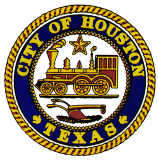The easy answer is “make it better”, it’s how you do that that’s harder.
As protests over George Floyd’s death swept the nation, activists in Houston cried out for police reform. Among their demands: Give us an independent police watchdog.
One already exists, city officials said: Houston’s Independent Police Oversight Board.
But the board lacks meaningful power, with one longtime civil rights activist calling it “window dressing.”
Houston’s Independent Police Oversight Board, which reviews investigations completed by the Houston Police Department’s internal affairs division, meets at police headquarters. It cannot launch its own inquiries or accept complaints directly from civilians. Members are forbidden from discussing any of the cases they review — even with the mayor or other public officials. Its sparse website includes instructions on how to file a complaint with police, but little information on the board’s own work. It lacks the power to subpoena documents or compel officer testimony. It’s a volunteer body appointed by the mayor and has no professional staff. And when members of the oversight board make policy recommendations, they often never find out what happens to their suggestions, current and former members told the Chronicle.
“It’s clear if we had additional clout, we could do more and better work,” said Gerald Birnberg, a Houston attorney who serves on the oversight board. “It feels like we’re working in the dark.”
As America reckons with racism and calls to address police violence, critics say Houston’s police oversight board is inadequate. Those who argue against change say the board has sufficient power and lacks training to investigate or issue subpoenas.
[…]
The board can make recommendations to the chief related to disciplinary action, policies and training, but the chief has the final say.
While members are forbidden from discussing the cases they review, some of their recommendations became public in a police brutality lawsuit filed after the 2012 police killing of Kenny Releford.
HPD was forced to turn over internal affairs files related to several shootings, with recommendations filed by the IPOB and its earlier incarnation. When the board reviewed the July 2012 shooting of Rufino Lara, two members of the panel wrote notes urging de-escalation training.
The officer should not have “fired her gun on someone who was not pointing or near to pointing a dangerous weapon toward her,” one member wrote. “Better training needs to be provided.”
The majority agreed with the department’s conclusions, but all checked off boxes indicating training had not been sufficient.
The police department also maintains discretion in deciding what records to release to the oversight board, though board member Kristin Anderson, a psychology professor at the University of Houston-Downtown, said members “see all documents associated with any case” that comes to the board.
She said the public deserves transparency, but said granting the board subpoena power is a “red herring” and would not give members “the ability to tell if a cop is lying.”
Birnberg said board members do not have unfettered, immediate access to all the records they request. He recalled seeing cases where board members were told obtaining an autopsy would take four months — far longer than the two-week period the board’s panels have to review individual cases.
“I don’t know if the chief is aware of the structural impediments to the panels getting meaningful information at the time they’re supposed to be ruling on the cases,” he added.
[…]
Houston attorney Joe Melugin, who spent three years suing the Houston Police Department over the shooting death of Kenny Releford, said he disagrees with those who say holding police legally accountable police should be left to the district attorney.
“Until the city fires police officers for abuses of power and unjustified violence, and until the DA prosecutes police the same as any of the rest of us, then the problems with police abuses of power will persist regardless of changes to the IPOB,” he said. “We must change how the police force exists and operates in our city.”
There’s a lot of back and forth in the story about what the IPOB can and cannot do, and I’m not in a position to assess the claims. I agree with Joe Melugin, the ultimate goal needs to be accountability, where bad cops are fired and cops who break the law are arrested and prosecuted like anyone else would be. Surely if that had always been the case, we wouldn’t be in the position we’re in right now. As for the “how do we get there” part of the discussion, I basically agree with the Houston Justice Coalition demands:
1. Uniform Body Camera Policy
The current body cam policy is a disjointed mess. Cameras are not on consistently. According to a KHOU investigative report completed in 2017, very few tapes were released to the public upon request. We demand that cameras run and that all tapes are released within 24 hours upon request.
2. Transparent Tracking of Complaints
When a complaint is made on an officer, there is no way to know the status of the complaint. The timelines for followup are egregious, and often aren’t even followed. Houstonians who want to hold police accountable must have a clear system with expedient, easily accessed methods of feedback between them and HPD to ensure that officers face consequences when they violate policy and civil rights.
3. Citizens Review Board with Subpoena Power
A citizens review board must have the power to bring officers in for questioning and possibly for charges and repercussions. Otherwise, a board is simply an artificial token, not an arbiter of true justice. We demand that a citizens review board chosen by The People, unchecked by the Houston Police Officers Union or City Hall, be formed immediately and granted with the power to subpoena law enforcement—full stop.
Maybe subpoena power isn’t all that, but let’s try it first and see where it gets us.


The IPOB iterations sounds a lot like the way Houston First operates it’s budget, difficult to get any information.